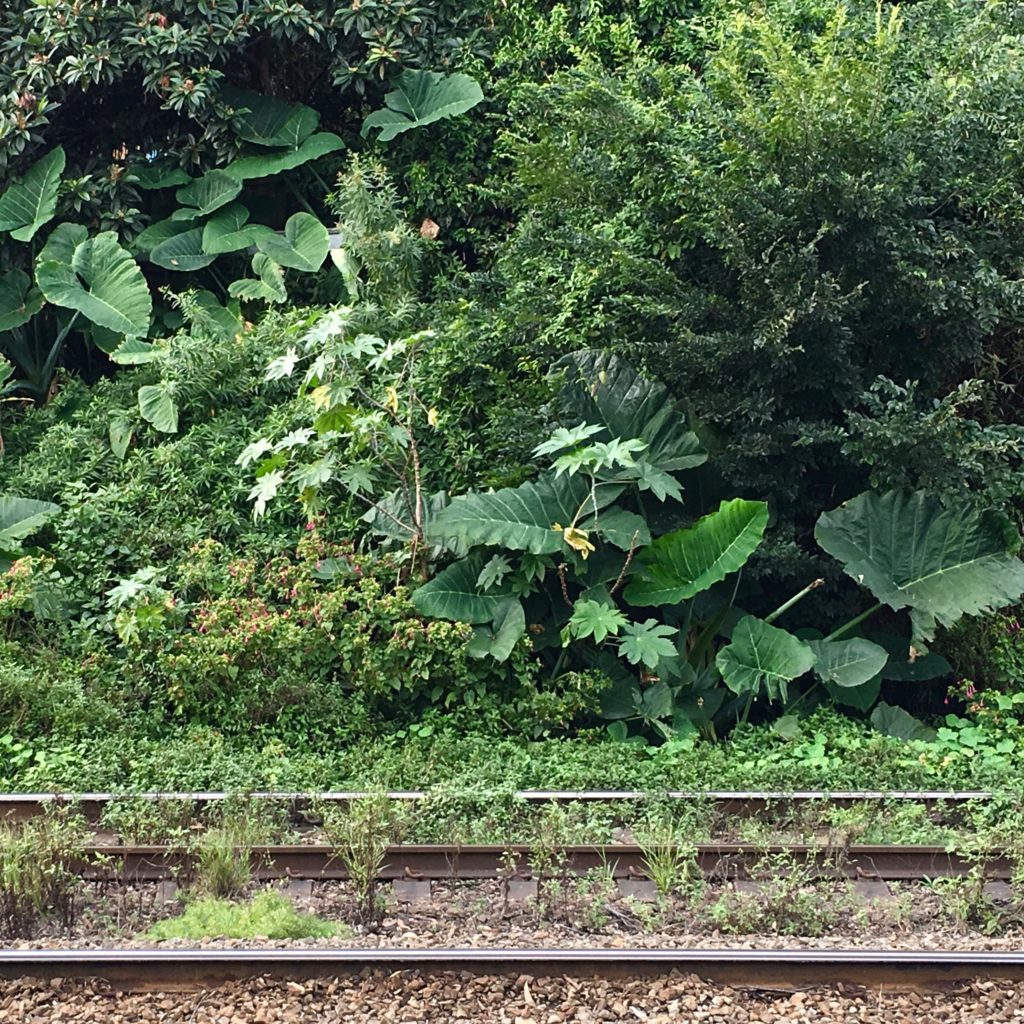In April we presented Migrant Gardens, a video essay at the Biennal Meeting of The Society for Cultural Anthropology, Displacements.

Spontaneous gardens of migrants plants: a banana grove, taro, papaya and sweet potatoes growing along the rail tracks
The conference engaged with different kinds of displacements, as it explains on its website:
Displacements are in the air: episodes of profound political upheaval, intensified crises of migration and expulsion, the disturbing specter of climatic and environmental instability, countless virtual shadows cast over the here and now by ubiquitous media technologies. What does it mean to live and strive in the face of such movements? What social and historical coordinates are at stake with these challenges? And what kind of understanding can anthropology contribute to the displacements of this time—given, especially, that our most essential techniques like ethnography are themselves predicated on the heuristic value of displacement, on what can be gleaned from the experience of unfamiliar circumstances?
In keeping with the theme, the conference was virtual: 28 hours of multimedia streaming with contributions from anthropologists, filmmakers, artists, activists, social scientists from 46 countries.
We presented a video essay about our Marrickville work, which you can see here. In this video we consider gardens made by humans and gardens made by rogue plants growing wild. We researched this video in Marrickville, a suburb in the inner city of Sydney on the land of the Cadigal and Wangal people of the Eora nation. As the current home of a large population of migrants, Marrickville is a contact zone between a Mediterranean and a tropical imaginary, between industrial landscapes and residential streets.
To understand Marrickville’s imaginaries we explored gardens from a transcultural point of view. We ask: what kind of imaginary do plants create? What practices do plants engender traveling from one place to another? The video presents examples of migrant gardens in Marrickville from our photo-documentation and ethnography. We argue that we need to consider migrant gardens as a practice of constant translation, reinvention and ‘redistribution of the sensible’ (Ranciere 2004). A practice in which plants, as well as humans, play a key role.

0 Comments